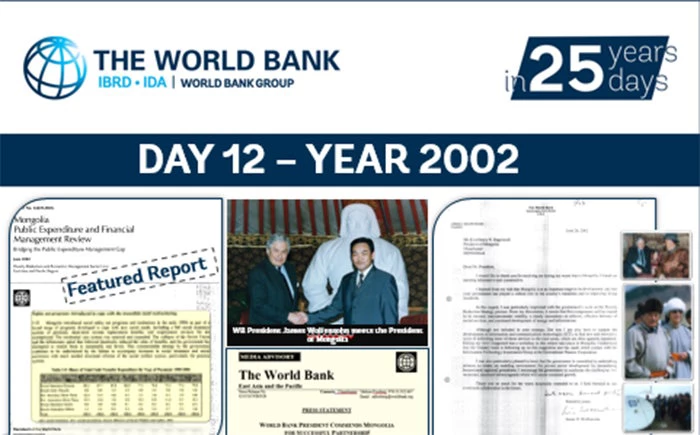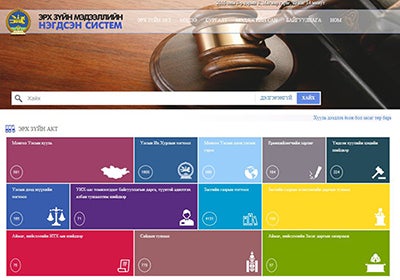
After back-to-back dzud’s (winter disasters), and to address the increasingly visible problem of rural poverty, the Sustainable Livelihoods Project (SLP) was approved in 2002. The rationale drew on a joint Government-donor evaluation of National Poverty Alleviation Program (NPAP) which concluded that “NPAP had provided valuable support to local governments for the rehabilitation of social and economic infrastructure, but the direct income-generation support to poor households was much smaller than ought to have been realized, and benefited perhaps not more than 20% of poor households. Achievements in reducing rural poverty were particularly limited.” With livelihoods on the steppe so fragile, what could be done?
The SLP improved pastoral risk management to reduce the vulnerability of herders and enhance their resilience to drought, dzud and other shocks. The project used approaches such as risk forecasting and contingency planning, grazing and pasture management, herder self-help initiatives, and hay and fodder enterprise development. In addition, to build resilience and diversity in rural areas, micro-finance services were provided to targeted poor and vulnerable non-poor households and individuals in remote rural areas of the eight core aimags. And to ensure that infrastructure development met the needs of local communities, mechanisms were established so that all members of the targeted communities could participate and prioritize infrastructure projects—participatory decentralization. Several of these features were later scaled up to become successful government programs.
The SLP helped address some of the challenges that made herders susceptible to dzud. Even with the best preparation, however, herders would still face risk. Isn’t there a way to help them recover without distorting incentives? Examining the feasibility of livestock insurance in Mongolia attempted to tackle this question, examining the feasibility of offering insurance to compensate for animal deaths. “Such an undertaking is challenging in any country. Mongolia offers even more challenges given the vast territory in which herders tend over 30 million animals. Traditional approaches that insure individual animals are simply not workable. The opportunities for fraud and abuse are significant. Monitoring costs required to mitigate this behavior would be very high.” The study assessed the potential for using the livestock mortality rate at a local level as the basis for indemnifying herders. Index-based insurance was considered precisely because it would, in theory, not distort incentives. The system would ultimately be tested (successfully) and then scaled up. (Videos here and here.) The year 2002 was also a year for taking on the challenge of public sector governance. The Legal and Judicial Reform Project was approved in late 2001 and became effective in 2002. It “aims to enhance public trust and confidence in the legal system as a whole and the judiciary in particular through the design and testing of new tools and systems that promote better access to legal information, the creation of specialized courts, and an improved legal education and profession.” The project supported the establishment of administrative court system to promote transparency and governance; capacity building for a unified system of legal and judicial information; a pilot center for Mongolian lawyers, judges, and the public; and improvement of legal education and the legal profession.
The year 2002 was also a year for taking on the challenge of public sector governance. The Legal and Judicial Reform Project was approved in late 2001 and became effective in 2002. It “aims to enhance public trust and confidence in the legal system as a whole and the judiciary in particular through the design and testing of new tools and systems that promote better access to legal information, the creation of specialized courts, and an improved legal education and profession.” The project supported the establishment of administrative court system to promote transparency and governance; capacity building for a unified system of legal and judicial information; a pilot center for Mongolian lawyers, judges, and the public; and improvement of legal education and the legal profession.
The World Bank also released the 2002 report Public Expenditure and Financial Management Review: Bridging the Public Expenditure Management Gap. As the title suggests, Mongolia had been wrestling with fiscal discipline, but political difficulties had made progress slow: “To address growing inadequacies in public sector management, the government proposed a Public Sector Financial Management Law (PSFML) in 1997 as a major instrument for reasserting budget discipline. The law has been stalled in parliament for almost five years, however, largely because of objections to the budget decentralization it called for. Local autonomy has great political importance in Mongolia, and successive drafts of the PSFML have not yet succeeded in reaching an acceptable compromise.” The report argued for a set of core principles, still valid today, against which reforms should be evaluated:
- "All reforms should increase the discipline and comprehensiveness of public sector management and budgeting;
- Proposed policy changes should be evaluated in terms of their impacts, effectiveness, efficiency and costs in the short, medium, and long terms, especially for the poor;
- Every assignment of a task to a governmental unit-national or local-should clearly identify and assign the resources needed, and the authority and accountability that will accompany those resources."
The report forcefully argued the merits of decentralization: “Fiscal decentralization is perhaps the most difficult design issue for improving service delivery at the local level while ensuring that sustainable national macro balances are protected. The current system undermines incentives for effective and efficient allocation of resources and performance management. The need for reform is unanimously recognized within the central government as a prerequisite for improving public sector performance, outcomes, and fiscal balances. However, considerable resistance remains to improving accountability at the local government level.” With piloting from SLP and other efforts, decentralization would later come to be a core part of the government’s approach to public finance.
Next we look at 2003, when environmental issues became more prominent.
Prepared in collaboration with Bolormaa Gurjav, Otgonbayar Yadma, and Bayartungalag Gursanjid.
(Please follow our 25 years in 25 days journey here and on twitter with the hashtag #WBG_Mongolia25th)


Join the Conversation